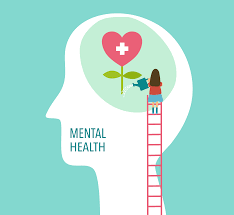Mental Health Effects as a Result of COVID-19

SOHAWM SENGUPTA – It is safe to say that COVID-19 has had a major impact on our everyday lives. From online classes to working from home, simple things are just not as simple as they were one year ago. However, with the emergency approval of three vaccinations, there is finally some hope that life may return to some semblance of normal sometime in the near future. However, the lasting mental impacts of COVID-19 could stick around for a long time to come. Quarantine and stress regarding the pandemic have caused a number of new or worsening mental health conditions in both the short-term and long-term. Large amounts of research have been conducted in order to identify consequences of the pandemic on mental health, looking at recent studies pertaining specifically to COVID-19 as well as using the SARS outbreak of 2003 due to the similar quarantine response at the time.
The SARS 2003 outbreak taught a great amount about the greatest struggles that people endured during periods of work from home. A previous study that came a few months after the SARS 2003 outbreak used the 30-item General Health Questionnaire to determine the presence of psychological disorders in 300 printing company workers a few months after being isolated due to possible exposure to SARS 2003. This study observed psychological disorders in over 26% of its subjects. Income reduction appeared to be the most highly associated predicting factor in those that had developed psychological disorders in response to the quarantine period. This similar pattern can be seen with COVID-19 in which financial insecurity has caused greater development of depressive symptoms. Greater financial concern was related to greater anxiety symptoms.
COVID-19 is not the first time that quarantine was a widely used practice to contain transmission of a virus. Quarantine as a result of SARS 2003 had serious implications on a number of patients. Hospital staff in Beijing were surveyed for mental health in regards to their exposure to SARS 2003. The survey revealed high levels of depressive symptoms were observed in the subjects of this study with the nature of quarantine being one of the largest contributing factors. A separate study in response to COVID-19 shows that quarantine is still unfavorable due to separation from loved ones, the loss of freedom, uncertainty over disease status, and boredom: all of which have contributed to elevated psychological costs. Additionally, many of the participants in the study have indicated impediments in other areas such as exhaustion, insomnia, poor concentration and indecisiveness, deteriorating work performance, and reluctance to work or consideration of resignation.
Headlines are inescapable in the modern day. Whether it be through the news or through various social media platforms, COVID-19 information has been at the forefront of every news medium for the last year. Increased circulation of news has reportedly shaped the public perception of the virus and has increased overall fear levels. Coupled with the high saturation of news is misinformation that has incited even greater amounts of stress and panic in many individuals. In the public eye, much of the blame for misinformation has been placed in the hands of public health officials. There is an expectation that these officials should be doing a better job to identify needles of misinformation in a haystack of news.
It is quite difficult to determine when COVID-19 will be a thing of the past, but it is even more difficult to determine just what effects the extended duration of quarantine. There is already substantial evidence hinting towards negative mental health repercussions. Quarantine has been necessary for the greater good, but it is yet to be seen what impact this may have at the individual level in years to come.
Copy Editor: Stephen Joseph
Photography Source: Rylan Puent, https://www.amsa.org/2020/07/20/mental-health-crisis-during-covid-19/
